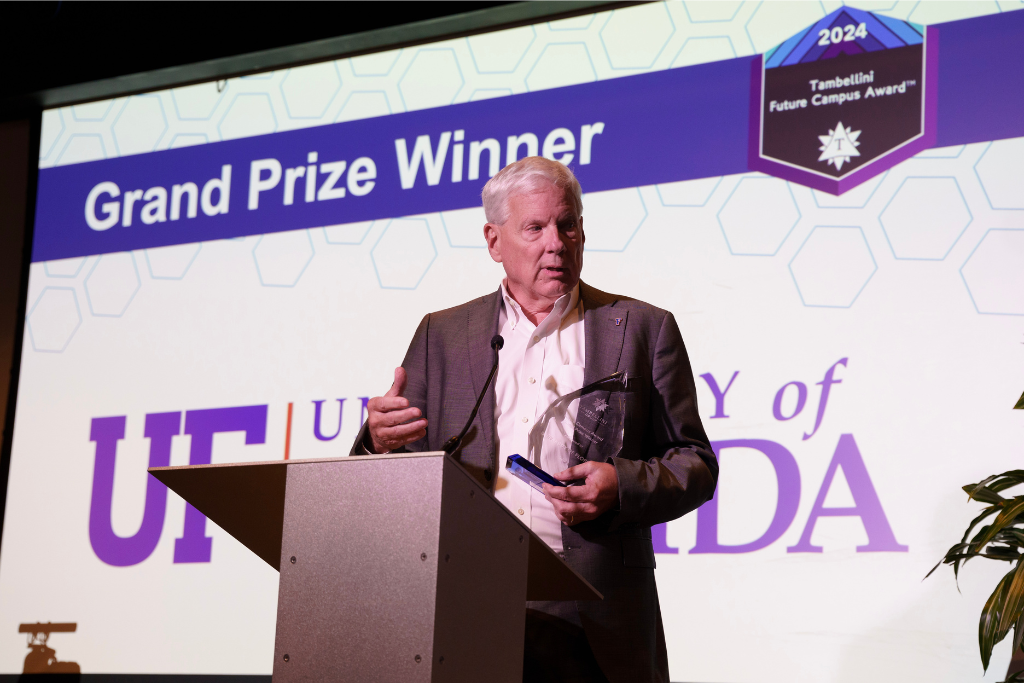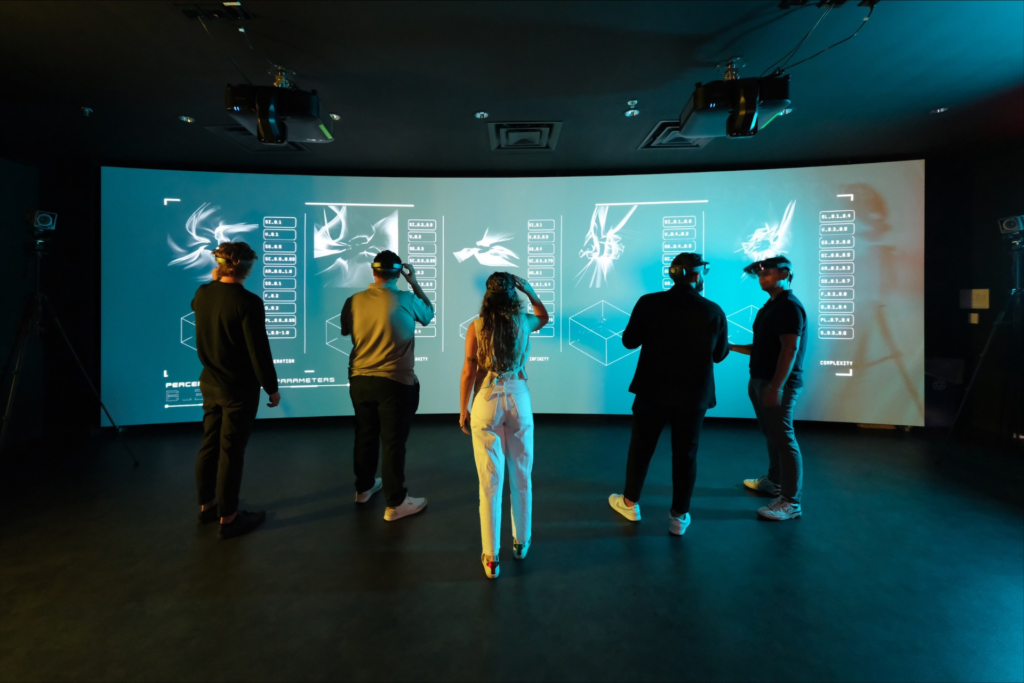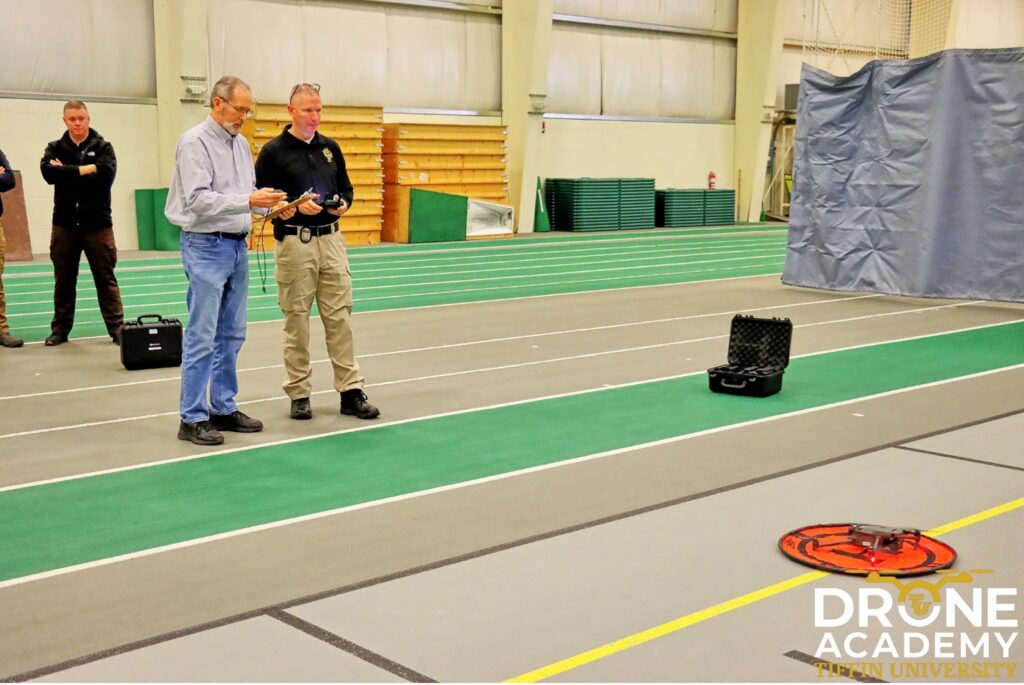Tambellini Group Spotlight
Tambellini Group Awards University of Florida $10,000 Grand Prize for Inaugural Future Campus Award
Irvington, Virginia – June 27, 2024 – Today, the Tambellini Group announced that the University of Florida (UF) won the grand prize in Tambellini’s inaugural Future Campus Award™. UF was presented with the $10,000 cash prize and award at Tambellini’s Future Campus™ Summit in New York City. Tambellini also recognized eight other institutions for their innovation and efforts to build a Future Campus.
“I’m pleased to present the University of Florida with this honor for their strategic and impactful work with AI that will surely serve as a model for other institutions,” said Katelyn Ilkani, President and COO of Tambellini. “I’m also delighted to celebrate the pioneering efforts of eight other deserving institutions.”
Tambellini established the Future Campus Award to honor innovative colleges and universities that are leveraging and integrating AI or other cutting-edge technologies to redefine the landscape of learning, administration, and campus life. The grand prize winner demonstrated excellence in one or more application categories, as well as excellence in ethical usage of AI and their future vision. Category winners and honorable mentions demonstrated distinction in one of the application categories listed below:
Innovation in AI and Technology Integration
- Winner: Florida Atlantic University
- Honorable mention: Tallahassee Community College
Impact on Learning Outcomes and Experience
- Winner: Missouri University of Science and Technology
- Honorable mention: Barry University
Operational Efficiency and Sustainability
- Winner: Oregon State University Foundation
- Honorable mention: Marshall University
Collaborative Initiatives
- Winner: Auburn University
- Honorable mention: Tiffin University
Grand Prize Winner: University of Florida
UF has developed plans and executed efforts to strategically and ethically support sustained AI education, use, and adoption across students, faculty, and staff. Further, it’s sharing its expertise so other institutions can learn from and replicate its success.
“We are incredibly honored to receive the grand prize in Tambellini’s inaugural Future Campus Award,” said UF Provost Dr. J. Scott Angle. “UF’s AI initiative stems from the vision of former Provost Joe Glover, and this award is a testament to his creative leadership and to the dedication of our faculty, students, and staff. AI has the potential to transform the future of learning and discovery, and we look forward to continuing to lead by example.”

The University’s AI Across the Curriculum program is a uniquely detailed and pioneering strategy that provides a myriad of opportunities for any student, regardless of their major, to become AI literate and prepared to join an AI-enabled workforce.
The program’s Quality Enhancement Plan details UF’s approach to revolutionizing teaching and learning with AI. It documents how UF will ensure alignment with the university’s mission, engage with stakeholders across the university, identify required resources, create and define its AI Academic Initiative Center, survey constituents to inform priorities, complete assessments, and much more. Furthermore, UF’s commitment to the ethical use of AI is paramount, evidenced by its adoption of the Rome Call for AI Ethics—an industry benchmark of AI safety principles.
UF’s Seed Grant Program is another innovative initiative that encourages faculty and students to shape the role of AI on campus. The annual program allows students to propose funding for new AI courses or enhance existing courses with AI modules.
UF has already completed vital work to define student AI learning outcomes based on recent literature. The university has implemented an advanced framework to continuously assess the progress of students’ learning outcomes through ethical data collection, analysis, and reporting.
UF has shown a strong commitment to implementing a sustainable and impactful AI strategy. It has clearly defined goals for the future and a detailed timeline for achieving them, demonstrating its dedication to long-lasting success.
Category Winners and Honorable Mentions
Innovation in AI and Technology Integration
Winner: Florida Atlantic University
Florida Atlantic University has implemented a groundbreaking integration of AI within its School of Architecture. It has embedded AI throughout the curriculum, creating a robust learning environment where students can harness computational thinking and AI-assisted design.
The School of Architecture’s Creative AI Lab offers hands-on experience with real-time AI applications, bridging the digital and physical design gap and fostering a collaborative human-machine learning environment. Further, its commitment to ethical AI usage, including transparent citation practices and context-specific restrictions, prepares students to navigate the evolving AI landscape responsibly.

Honorable Mention: Tallahassee Community College
Tallahassee Community College (TCC) has created new support channels to provide around-the-clock assistance for critical student needs. By leveraging a modernized technology stack, TCC was able to combine existing resources with next-generation tools and approaches to develop enhanced support capabilities.
Within a few months of launching its enhanced support channels, the data clearly showed an increase in the success of self-service support, allowing TCC to reallocate staff resources to other areas of need. The college’s strategy will now enable the expansion to other campus partners.
Impact on Learning Outcomes and Experience
Winner: Missouri University of Science and Technology
Missouri University of Science and Technology (S&T) has established a new and effective student-resourced tutoring network. The effort leverages a modern process and toolset to engage readily available students.
Since launching the initiative, S&T has collected data to gain valuable insights into the program’s effectiveness. It determined that significantly high tutoring participation rates played a crucial role in driving the institution’s highest-ever student retention rate. S&T achieved this remarkable success through relatively minor yet strategic changes across people, processes, data, and technology.
Honorable Mention: Barry University
Barry University’s Student Success Community (S2C) leverages existing platforms and internal resources to proactively support student success and retention among first-year students. S2C, a collaboration between IT and the Center for Academic Success and Advising, took an innovative and phased approach that began with data aggregation across multiple systems and culminated in predictive modeling using newly identified risk factors with plans to integrate more advanced techniques such as generative AI.
S2C uses novel models to develop effective student retention strategies, which have resulted in a two percent increase in retention rates from fall to fall and fall to spring since the program’s launch. Barry also presented a comprehensive strategy for ethical AI use that spanned privacy, security, and equity.
Operational Efficiency and Sustainability
Winner: Oregon State University Foundation
The Oregon State University Foundation (OSUF) is successfully leveraging data-driven strategies and automation to enhance fundraising efforts and student support. OSUF leveraged AI to support the university’s Beavers Care Initiative, an effort aimed at aiding at-risk OSU students. Through AI, OSUF generated more than 1,000,000 new data points that helped it better understand and respond to donor behavior, significantly improving fundraising outcomes.
Implementing smart forms and automated personalized videos has streamlined operations and enriched the donor experience. Furthermore, OSUF’s commitment to data privacy and legal compliance, along with a strategic vision for expanding AI integration, underscores its dedication to ethical considerations and future scalability. This holistic approach optimizes operational efficiency and sets a benchmark for sustainable, data-driven philanthropy in higher education.
Honorable Mention: Marshall University
Marshall University has shown a commitment to adopting and making modern AI tools accessible university-wide, from teaching and learning assistance for students to administrative automation. The adoption and planned rollout of Microsoft CoPilot and Salesforce Einstein GPT for IT service desk self-service have the potential to significantly improve operational efficiency.
The university’s Presidential Taskforce on AI is responsible for ensuring AI is applied in ways that align with institutional goals, including ethical considerations such as accessibility, usage and adoption, and data security and privacy. This holistic approach, which includes regular and consistent communications on its expectations of AI tool usage, aims to adhere to best practices, abide by all relevant laws and regulations, and achieve ROI.
Collaborative Initiatives
Winner: Auburn University
Auburn University (AU) has established multiple collaborative efforts and partnerships to improve AI adoption, use, and literacy, especially for educational purposes. Through its AI@AU initiative, AU has developed a comprehensive, university-wide computational infrastructure to support AI research and educational endeavors. Through online courses, the university also supports AI literacy globally. Through a partnership with the Alabama School Librarians Association, AU also has plans to adapt and expand a program for K-12 educators this year, demonstrating its commitment to improving AI literacy at all levels of education. Finally, AU partners with major technology companies for its annual AI Day, bringing cutting-edge industry insights directly to its students and faculty.
AU has also established comprehensive AI policies and guidelines to safeguard its technological ecosystem while contributing to broader discussions about the ethical use of AI in higher education. Lastly, AU is observing and applying findings from its current initiatives to its long-term AI strategic vision.
Honorable Mention: Tiffin University
Tiffin University (TU) has established an innovative collaboration between TU’s Drone Academy and the Ohio Department of Transportation (ODOT) that utilizes unmanned aerial systems (UAS) for incident scene surveillance and documentation. This project stands out for its integration of drone technology to improve public safety operations, reduce traffic disruptions, and provide rapid, comprehensive scene documentation. TU’s specialized curriculum, developed for ODOT personnel, ensures participants are well-prepared for FAA regulations and safety procedures, enhancing operational responses across multiple agencies.
The initiative, now in its second year, has resulted in substantial efficiency gains, reducing labor and costs by 60-70 percent, on average, per incident, and improving safety by minimizing the time public safety workers spend on highways. Statewide cost savings are projected between 16 million and 31 million dollars. This forward-thinking approach underscores TU’s commitment to ethical considerations and privacy. With plans to expand across all ODOT districts and explore broader applications in infrastructure inspections, the program also sets a precedent for the scalable and impactful use of drone technology in public sector operations.

About the Future Campus Award
Launched in 2024, the Future Campus Award is an evolution from the Tambellini Technology Leadership Awards, which honored higher education IT leaders and their teams since it was established in 2015. In that time, the higher education technology landscape and the forces impacting higher education have changed significantly. Today, IT teams must collaborate institution-wide to ensure project and institutional success. The Future Campus Award celebrates this shift and recognizes the collective efforts across diverse teams at colleges and universities.
About the Tambellini Group
The Tambellini Group has been the leading provider of unbiased and proprietary research and advisory services to higher education since 2001. Our mission is to equip educational institutions with the impartial insights, tools, and market predictions needed to make informed technology decisions while maximizing return-on-investment and constituent experience. We empower institutions to overcome challenges, seize opportunities, and pave the way toward a brighter future for higher education. Learn more at thetambellinigroup.com.
For Media Inquiries
Share Article: